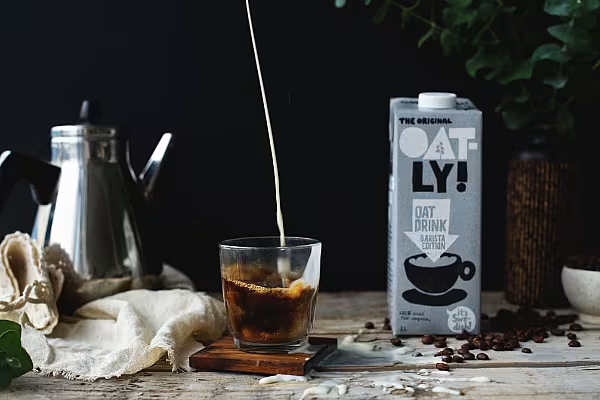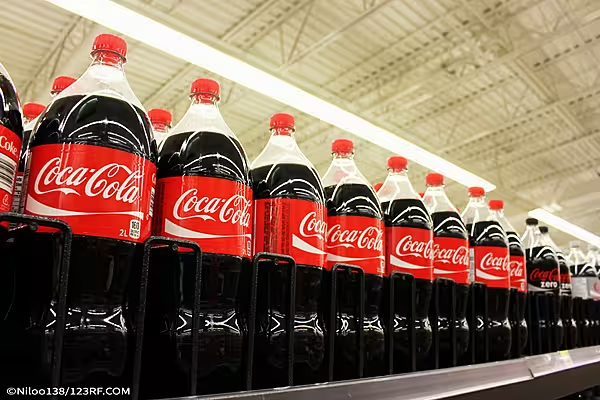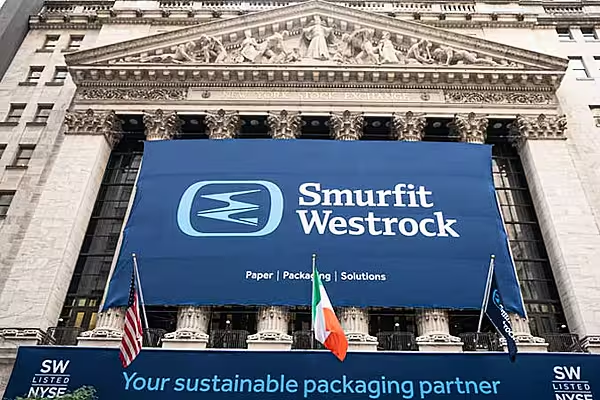Leading oat milk brand Oatly and the owner of Flora margarine are spearheading a campaign to overturn new proposed EU rules that could have dire consequences for vegan food companies.
A ruling by the European Court of Justice in 2017 has already banned vegan food producers trading in the EU from using terms such as 'oat milk' and 'soya yoghurt' on packaging.
But if new rules known as Amendment 171 are approved, producers will not be able to use terms or imagery on packaging which refer to or evoke dairy products.
If interpreted broadly, the amendment could prevent them from including claims or denominations such as 'dairy', 'creamy', 'yoghurt-style dessert' or 'does not contain milk'.
They would also be unable to use packaging designs that call to mind dairy products, such as yoghurt pots or milk cartons. Even simply showing climate impact by comparing the carbon footprint of their products with dairy equivalents could become illegal.
So how did it come to this – and does the vegan industry have any chance of preventing these new rules from going ahead?
Consumer Protection
The dairy industry, which lobbied for Amendment 171, argues that the ban on the use of dairy-related terms is necessary to protect consumers and make sure they are not misled.
The industry can point to similar existing EU laws around products, for example in relation to health claims or the region where an item comes from.
Vegan food companies are concerned that if these 'protections' under the amendment are put in place, they will need to rebrand, rename and rethink marketing strategies – with serious additional costs.
In other words, this is a face-off between a sector that is long-established but still growing and an up-and-coming rival.
Plant Milk Market
The plant milk market alone accounted for US$12 billion (£9 billion) in global sales in 2019 and is set to grow by 11% per year between 2020 and 2026 to reach US$21 billion.
But this is tiny compared to the dairy industry – which is expected to grow from US$718 billion in 2019 to slightly over US$1 trillion in 2024.
Amendment 171 achieved a majority vote in the European parliament in October. It now needs approval from the EU Council of Ministers, which will consider the proposal at the trilogue meetings with the parliament and European Commission on January 27-28.
If it’s agreed by the council and the commission, it will become law. Oatly, Flora owner Upfield and the NGO ProVeg International have launched a petition in an attempt to persuade the EU to drop the new restrictions.
At stake are not simply words, of course. As the British philosopher JL Austin famously put it, sometimes we are actually doing things with words – in this case, using them to try and maximise sales.
Contested Uses Of Terms
Notable contested uses of terms such as Champagne, Parmigiano, or Tocaj have all demonstrated that language and the reality of competition coincide when it comes to food.
When it comes to Amendment 171, arguments for and against tend to look at the consequences. Most commonly, it is argued that since dairy farming can be seen as both bad for the environment and animal welfare, presenting vegan products as alternatives will help offset these effects. The welfare issues around dairy farming are even arguably worse than with meat, for instance.
There is more room for debate around the health comparisons between dairy and vegan alternatives. The relative benefits of the vegan alternatives are affected by a variety of factors such as consumers’ age, gender, race and lifestyle.
As for the dairy lobby’s arguments about confusing consumers, they are in danger of looking out of date, given the tremendous changes in eating habits that have taken place in recent years.
The proportion of vegans in the EU has doubled in the past four years according to this survey. And although it’s only 3% of all consumers, as many as a third consider themselves 'flexitarians' rather than meat eaters, and a sizeable proportion plan to go vegetarian or vegan in future.
Etymology
This touches on one of other argument from the dairy lobby, which is around etymology: they say that 'milk' and 'dairy' have been essentially linked to the rich liquid fluid produced from glands of mammals – unlike “meat”, which doesn’t need to have anything to do with animals.
This, they argue, is why it did not create a precedent in October when the European parliament voted against a proposal that would have banned terms such as 'veggie burger' and 'vegan steak'. Needless to say, vegan dairy producers take the opposite view.
It’s difficult to foresee how EU institutions will now proceed. Will they value the 'pro-health' points made by the vegan sector? Or will they be persuaded by the 'consumer confusion' argument pushed by the dairy industry?
Amendment 171 was passed in the European parliament with a narrow majority (54%), which feeds hopes within the vegan industry that enough doubt has been cast on the issue for the new rule to be blocked.
Relevant In The UK
The debate is also relevant in the UK, where 3.5 million people – around 5% of the population – now see themselves as vegan and choose not to consume or use animal byproducts.
Like many other countries, UK law provides that food information should be accurate, clear and easy to understand for consumers, making sure that they can rely on correct information and make informed choices based on their diet, allergies and taste.
Also, commercial practices which mislead consumers can be punished under criminal law and advertising rules.
But there are no rules as strict as Amendment 171. Should such a regime be finally adopted by the EU, we would have a scenario where marketing rules for plant-based food are tighter in the EU than in Britain.
Yet Amendment 171 would still apply to UK producers who want to export to the EU. And, as the EU is the main market for export, British producers of vegan dairy food may eventually decide to voluntarily follow the new EU rules in their domestic market, to exploit economies of scale.














